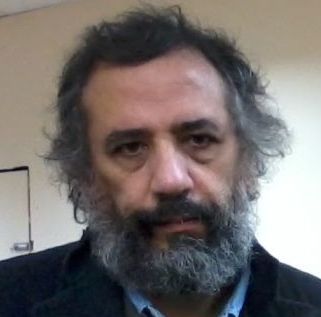

 By VennerRoad, 7th Oct 2016
By VennerRoad, 7th Oct 2016
All over the world, languages and entire cultures are dying. What is being done to halt this?

Save the Yaaku language.
Around 1983, the American radical David Lane coined a now infamous expression known as The Fourteen Words: “We must secure the existence of our people and a future for white children.”
Lane died in prison a convicted terrorist; his crimes included the murder of disc jockey Alan Berg. Because of this and more importantly because of his ideology, his iconic phrase has been relegated to the hate zone, but was he wrong?
Lane took a parochial view of world events and blamed a particular racial minority for them, all the bad ones at any rate, but when one takes a deeper look, one finds others share the same concerns although most of them would be horrified at the suggestion.
Recently, the BBC broadcast a report about a dying African language; the Yaaku tribe of Kenya numbers around 4,000; there are currently thought to be only ten people – elders – who can speak the Yaaku language fluently; this is a language, not a dialect. Kenya has a population of over 44 million; it has two main languages, Swahili and of course English. English is the lingua franca of not only planet Earth but of the Universe, even the Daleks in Doctor Who and sundry aliens in Star Trek speak it.
That is good new for English speakers and for those many people who are able to if not master it then become sufficiently fluent in English to converse with people wherever they go or wherever they connect. What though of those who want to have their cake and eat it, more to the point, why should we not seek to preserve the world’s cultural diversity?
Diversity has long become a buzzword in the West, but anyone who takes a deeper look will realise it means something entirely different in the political sphere; it has become an instrument of social change even of tyranny as all manner of left wing groups exploit it to promote minority interests – including those of sexual deviants – backed up by repressive laws. There is though a big difference between exploiting diversity to ensure that every soap opera has its village gay and preserving a language or a tradition that is one step from oblivion.
Fortunately, there is now a growing awareness of what we are losing; in 2012, Google set up the Endangered Languages Project; this is not the first such project, and fortunately a number of institutions are either collaborating or running their own, like SOAS in London, and the prestigious Stanford University.
It is not though simply languages that are under threat but entire cultures. The Chinese occupation of Tibet is a controversial issue, but as China is the rising superpower it is one that can only be tackled diplomatically. In 1950, China invaded Tibet establishing a puppet régime. Tibet has a relatively small population, and China’s position is that it is part of China rather than a nation in its own right in spite of its illustrious past. Whatever merit this argument may have, the suppression of the Tibetan language and to a degree its indigenous culture is one that should concern us all.
The Dalai Lama is of course well known in the West as the nation’s spiritual leader, although he has lived in exile since the brutal suppression of the 1959 uprising. There are other exiles and Westerners who lobby for the liberation of Tibet from Chinese “Imperialism”, although they haven’t had much luck so far.
There is a counter-argument to the preservation of indigenous languages and cultures, one that can be summed up in two words: who cares? Would the native of Northern Canada really prefer to live in his traditional igluvigak than a modern, centrally heated house? Would Amazon tribes rather forage and hunt for survival than tuck into a Big Mac? And wouldn’t billions of people throughout the world be better off consigning their various religions to the trash heap looking instead to Science for all their answers?
The people in control of the West have already made that choice for us, the big question is, can we take it back? The Fourteen Words of David Lane have a message for all Mankind, one that is bigger than the man himself could have dreamed of.
To Wikinut Articles Page